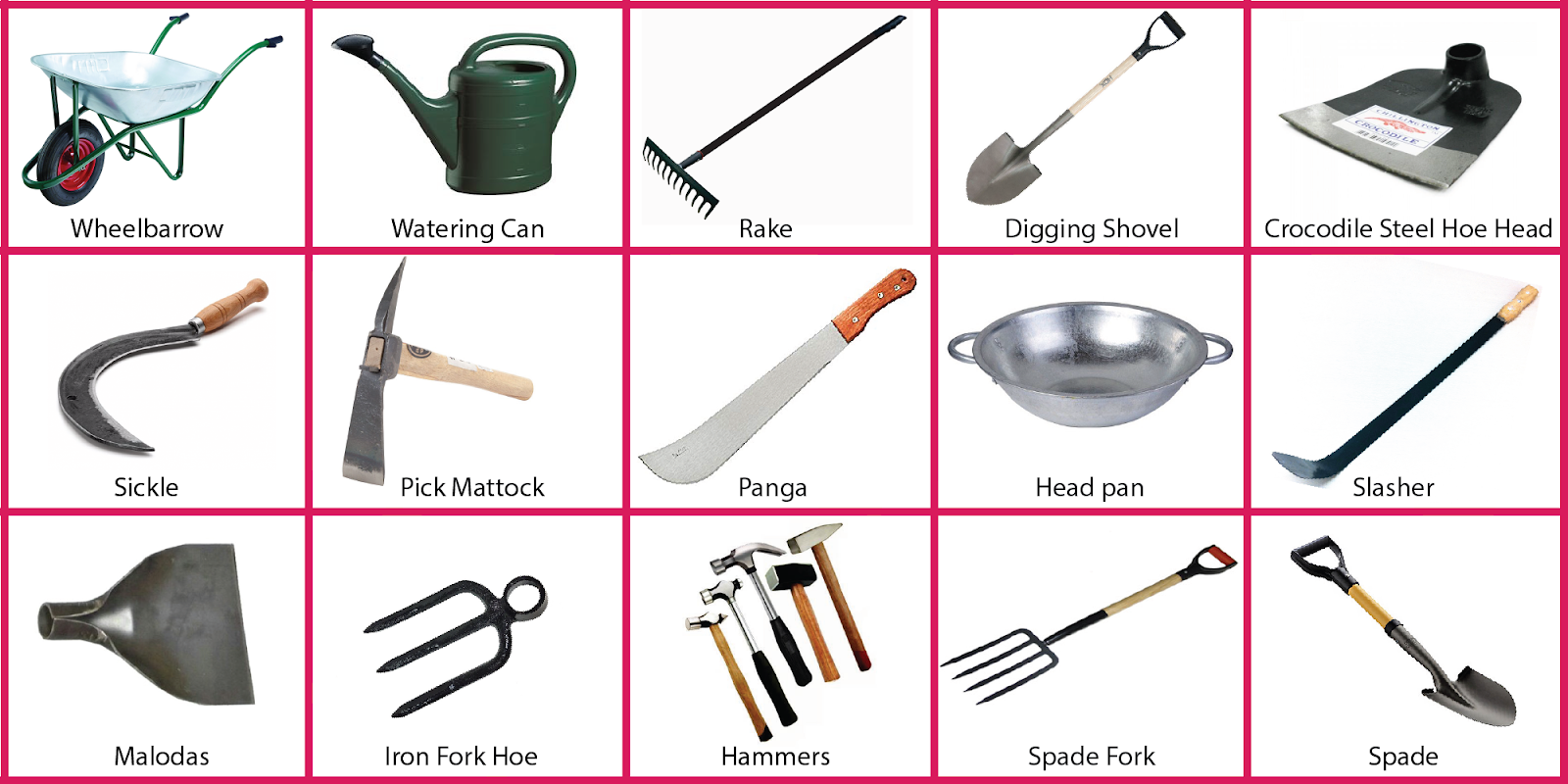Farm tools are the backbone of agricultural practices, enabling farmers to cultivate their land efficiently and effectively. From traditional hand tools to advanced machinery, the variety of farm tools available today plays a crucial role in optimizing productivity and ensuring sustainable farming practices. As agriculture continues to evolve, understanding the different types of farm tools and their applications can greatly impact the success of farming operations.
Furthermore, the choice of farm tools can influence not only the yield but also the quality of crops produced. With the right tools, farmers can reduce labor costs, improve efficiency, and achieve better results in their farming endeavors. This article delves into the essential farm tools every farmer should consider, along with their uses, benefits, and tips for selecting the right ones.
Whether you are a seasoned farmer or just starting out in the agricultural field, being knowledgeable about the various farm tools available can help you make informed decisions. Let's explore the world of farm tools and discover how they can enhance your farming experience.
What Are the Different Types of Farm Tools?
Farm tools can be broadly categorized into several types based on their functionality and usage. Here are some of the primary categories:
- Hand Tools: These are basic tools that rely on manual labor, such as shovels, hoes, and rakes.
- Power Tools: These tools are powered by electricity or fuel and include items like tillers, chainsaws, and power washers.
- Tractors and Implements: Tractors are versatile machines that can be equipped with various attachments for plowing, planting, and harvesting.
- Irrigation Tools: Essential for water management, these include hoses, sprinklers, and drip irrigation systems.
How Do Farm Tools Improve Farming Efficiency?
The right farm tools can significantly enhance the efficiency of agricultural practices. Here are some ways they contribute to improved farming:
- Time Savings: Tools that automate tasks can save a considerable amount of time, allowing farmers to focus on other important aspects of their operations.
- Labor Reduction: Modern farm tools can reduce the amount of manual labor required, making it easier for small farms to operate effectively.
- Precision: Advanced tools offer better precision in planting, watering, and harvesting, leading to higher quality produce.
- Sustainability: Many modern tools are designed to be more environmentally friendly, helping farmers to practice sustainable agriculture.
What Are the Must-Have Hand Tools for Every Farmer?
Even in an age of advanced machinery, hand tools remain vital for many farming tasks. Here are some must-have hand tools:
- Shovel: Ideal for digging and moving soil.
- Hoe: Perfect for cultivating soil and removing weeds.
- Rake: Useful for leveling soil and gathering debris.
- Pruning Shears: Essential for trimming plants and maintaining garden health.
How Do Power Tools Enhance Farming Practices?
Power tools have revolutionized the agricultural industry by providing farmers with equipment that can perform tasks more quickly and efficiently. Some key power tools include:
- Tillers: These machines prepare the soil for planting by breaking it up and aerating it.
- Chainsaws: Ideal for cutting down trees or clearing land.
- Pressure Washers: Useful for cleaning farm equipment and maintaining hygiene.
What Role Do Tractors Play in Modern Farming?
Tractors are perhaps the most important farm tool in modern agriculture. They provide the power needed for various tasks, and their versatility allows them to be used with many different implements. Here’s how tractors benefit farmers:
- Multi-Functionality: Tractors can be fitted with plows, seeders, and trailers, making them suitable for a wide range of agricultural tasks.
- Increased Productivity: By mechanizing work, tractors enable farmers to cover more ground in less time.
- Cost-Effective: Although the initial investment may be high, tractors save money over time by reducing labor costs.
What Are the Best Irrigation Tools for Effective Water Management?
Water management is crucial for successful farming, and having the right irrigation tools can make a difference. Here are some effective irrigation tools:
- Drip Irrigation Systems: These systems deliver water directly to the roots of plants, minimizing water waste.
- Sprinklers: Ideal for covering large areas, sprinklers can be adjusted to meet different watering needs.
- Soaker Hoses: These hoses allow water to seep out slowly, providing deep watering for plants.
How Can Farmers Choose the Right Tools for Their Needs?
Selecting the right farm tools is essential for maximizing efficiency and productivity. Here are some tips for farmers to consider:
- Assess Your Needs: Consider the size of your farm and the types of crops you grow to determine which tools are necessary.
- Research Options: Look for tools that have good reviews and are recommended for your specific farming practices.
- Budget Wisely: Determine how much you can afford to spend and prioritize investing in essential tools first.
- Seek Expert Advice: Consulting with experienced farmers or agricultural specialists can provide valuable insights into the best tools for your farm.
What Future Innovations Are Expected in Farm Tools?
The future of farm tools promises exciting innovations that will further enhance agricultural efficiency. Some anticipated advancements include:
- Smart Farming Tools: Integration of technology, such as IoT devices, will enable farmers to monitor their crops and equipment remotely.
- Robotics: Automated robots will take on various farming tasks, reducing the need for manual labor.
- Eco-Friendly Tools: Continued development of sustainable tools designed to reduce environmental impact will be a priority.
In conclusion, farm tools are indispensable for successful agricultural practices. Understanding the various types of tools available, their benefits, and how to choose the right ones can empower farmers to optimize their operations. As technology continues to advance, the future of farm tools looks promising, offering new opportunities for efficiency and productivity in agriculture.



